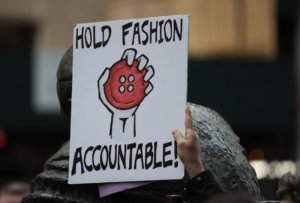Flooding from torrential rains recently led Vermonters to kayak through the streets of the state capital. A month later, Hawaiians were forced to flee to the ocean to avoid devastating blazes. All the while, toxic smoke from wildfires has imperiled the health of Americans across huge swaths of the country. All these alarming environmental developments hurt economic activity. Yet many political leaders seem preoccupied with banning investors from considering the impacts of the fast-changing environment on business.
 These fervent objections to the longstanding use of environmental, social, and governance (ESG) criteria in investing are a recent political chimera emanating — at least in part — from the overselling of an ill-defined concept. ESG investors include nonfinancial factors in their decisions to buy or sell a security or private asset. ESG does not, however, prevent them or anybody else from purchasing the stocks of fossil fuel companies, nor does it contribute essential primary capital to develop solutions to avoid the worst impacts of climate change.
These fervent objections to the longstanding use of environmental, social, and governance (ESG) criteria in investing are a recent political chimera emanating — at least in part — from the overselling of an ill-defined concept. ESG investors include nonfinancial factors in their decisions to buy or sell a security or private asset. ESG does not, however, prevent them or anybody else from purchasing the stocks of fossil fuel companies, nor does it contribute essential primary capital to develop solutions to avoid the worst impacts of climate change.
https://www.institutionalinvestor.com/article/2c3comfbca055bi96zxts/opinion/proponents-and-critics-of-esg-claim-it-can-change-society-both-will-be-disappointed








 These fervent objections to the longstanding use of environmental, social, and governance (ESG) criteria in investing are a recent political chimera emanating — at least in part — from the overselling of an ill-defined concept. ESG investors include nonfinancial factors in their decisions to buy or sell a security or private asset. ESG does not, however, prevent them or anybody else from purchasing the stocks of fossil fuel companies, nor does it contribute essential primary capital to develop solutions to avoid the worst impacts of climate change.
These fervent objections to the longstanding use of environmental, social, and governance (ESG) criteria in investing are a recent political chimera emanating — at least in part — from the overselling of an ill-defined concept. ESG investors include nonfinancial factors in their decisions to buy or sell a security or private asset. ESG does not, however, prevent them or anybody else from purchasing the stocks of fossil fuel companies, nor does it contribute essential primary capital to develop solutions to avoid the worst impacts of climate change.